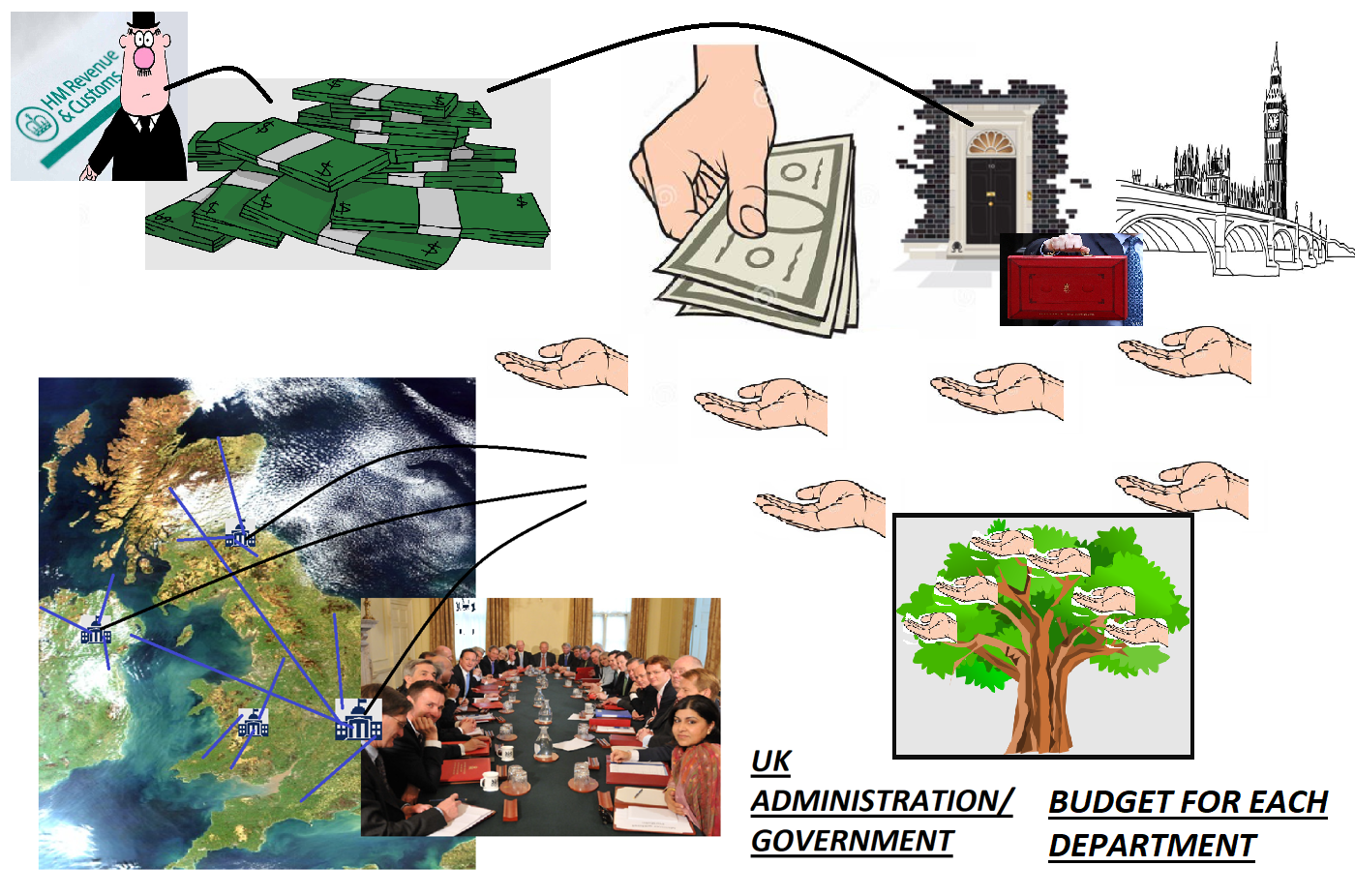R v Secretary of State for the Environment, ex p. Nottinghamshire County Council [1985] UKHL 8
Citation:R v Secretary of State for the Environment, ex p. Nottinghamshire County Council [1985] UKHL 8
Rule of thumb:Can a department or branch of Government complaint about the money they are given by the Government their public service? As a general rule, no. Once all of the tax is collected in by the Chancellor from the HMRC, and this is then declared to the Prime Minister, the Prime Minister then has to decide how much money all of the different departments of Government are going to receive – this is called the ‘budget’. The Prime Minister then sets out how much each department of Government is going to receive in a bill, and Parliament passes this in order to affirm the funding to all the different departments of Government.
Background facts:
The basic facts of this case were that there was difficult economic times in the UK and Nottinghamshire County Council were dismayed at the amount of money which was being granted for different departments of Government, and that they could not do their job properly with the level of funding provided.
Judgment:
The Court held that deciding how much money all the different departments of Government are to receive is a moral/ethical/value matter rather than a legal one which the Court is likely to almost never declare to be a breach of administrative, and that this particular matter is almost always for the Executive and Parliament to decide. (this was not a human rights action where it was argued that such a low amount of funding was being provided that human rights were being violated).

Ratio-decidendi:
‘To sum it up, the levels of public expenditure and the incidence and distribution of taxation are matters for Parliament, and, within Parliament, especially for the House of Commons... For that is a question of policy for the minister and the Commons, unless there has been bad faith or misconduct by the minister. Where Parliament has legislated that the action to be taken by the Secretary of State must, before it is taken, be approved by the House of Commons, it is no part of the judges’ role to declare that the action proposed is unfair, unless it constitutes an abuse of power in the sense which I have explained.’ Lord Scarman
Warning: This is not professional legal advice. This is not professional legal education advice. Please obtain professional guidance before embarking on any legal course of action. This is just an interpretation of a Judgment by persons of legal insight & varying levels of legal specialism, experience & expertise. Please read the Judgment yourself and form your own interpretation of it with professional assistance.

